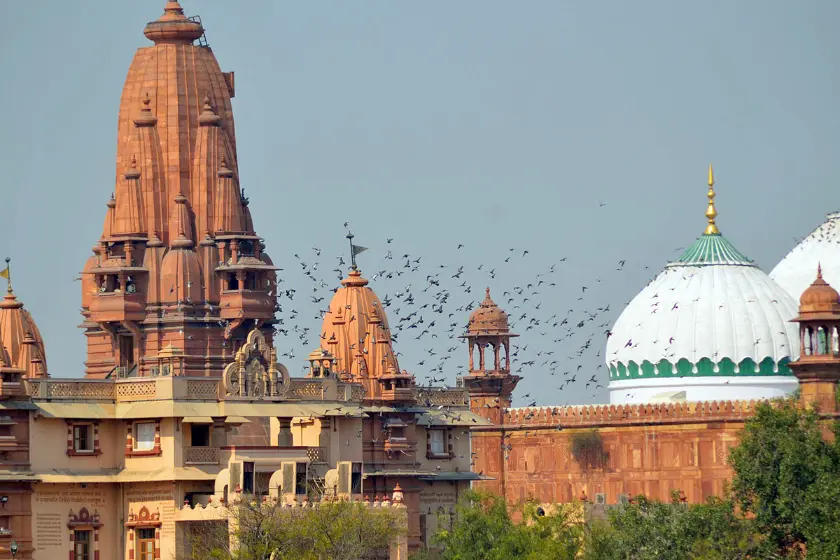Aurangzeb’s reign was characterized by his strict adherence to orthodox Sunni Islam and his policies against non-Muslims. The demolition of the temple at Mathura’s Krishna Janmabhoomi stands as a stark example of his religious zealotry and its impact on Hindu-Muslim relations in India.
Historical Background
Aurangzeb’s views on Hindu temples were influenced by his religious beliefs. He issued orders for the destruction of temples across his empire, viewing them as symbols of idolatry. Mathura’s Krishna Janmabhoomi held particular significance as the birthplace of Lord Krishna, a central figure in Hindu mythology and worship.
Demolition of Mathura’s Temple
In 1670, Aurangzeb issued orders for the demolition of the temple at Mathura’s Krishna Janmabhoomi. Despite resistance from the local Hindu population, the temple was razed to the ground, symbolizing Aurangzeb’s intolerance towards non-Muslim religious sites. The destruction left a profound impact on the Hindu community and the cultural landscape of Mathura.
Controversy and Legacy
Historians and scholars have debated Aurangzeb’s motivations for the demolition. While some argue it was purely religious, others suggest political and economic factors played a role. Regardless, the event has left a lasting legacy, fueling tensions between Hindus and Muslims in India.
Preservation Efforts and Commemoration
Efforts to preserve the site of Mathura’s Krishna Janmabhoomi have been ongoing, with restoration projects and legal battles for protection. Despite the destruction, the temple’s legacy endures through annual events and rituals, serving as a reminder of Aurangzeb’s actions and the resilience of Hindu culture.
The demolition of Mathura’s Krishna Janmabhoomi temple under Aurangzeb’s orders remains a contentious chapter in Indian history. It underscores the complex interplay of religion, politics, and cultural heritage, leaving a lasting impact on communal relations in India.
FAQs:
- Was Aurangzeb solely responsible for the demolition of Mathura’s temple?
- While Aurangzeb issued the orders for demolition, the decision likely involved various factors, including religious and political considerations.
- What was the significance of Mathura’s Krishna Janmabhoomi in Hinduism?
- Mathura is believed to be the birthplace of Lord Krishna, making it one of the holiest sites in Hinduism.
- Have there been efforts to rebuild the temple at Mathura’s Krishna Janmabhoomi?
- Various organizations and individuals have advocated for the reconstruction of the temple, but legal and logistical challenges persist.
- How did the demolition of Mathura’s temple impact Hindu-Muslim relations in India?
- The event contributed to existing tensions between the two communities, serving as a symbol of religious intolerance and discrimination.
- Are there any annual events or rituals held to commemorate the temple’s legacy?
- Yes, several festivals and rituals are observed by Hindus at Mathura’s Krishna Janmabhoomi, reaffirming its cultural and religious significance.







